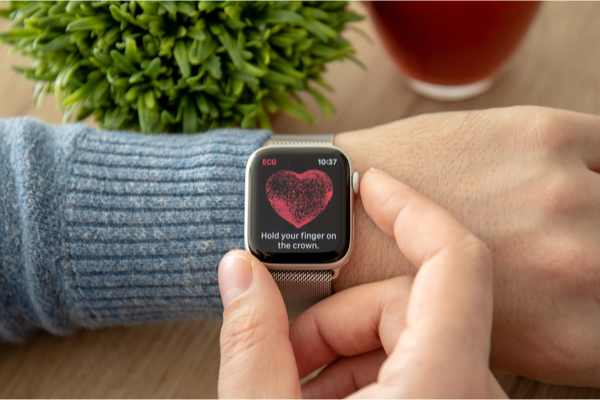Apple Inc’s Heart study, the largest yet to explore the role of wearable devices in identifying potential heart problems, found that their Apple Watch could accurately detect atrial fibrillation, the most common type of irregular heartbeat, with overwhelming (reports say 84%) accuracy, U.S. researchers reported this month.
The results, published in the New England Journal of Medicine (NEJM), come as technology companies increasingly strike up partnerships with drugmakers as a way to gather large amounts of real-time health data on individuals.
The Apple study, conducted by researchers at Stanford University School of Medicine, tested the Apple Watch’s heart rate sensor and algorithm in more than 400,000 participants who used an app to sign up for the eight-month trial. During the study, only 0.5% of participants received a warning that they had an irregular pulse, a finding study authors believe should ease concerns that the device would result an excess of notifications in healthy participants. People flagged for an irregular pulse were sent an EKG patch to wear. Of those, 34% were found to have atrial fibrillation.
Earlier this month, Alphabet Inc’s Google bought the health tracking company Fitbit for $2.1 billion. That followed Fitbit’s alliance in October with U.S. drugmakers Bristol-Myers Squibb Co and Pfizer Inc to develop their own technology to spot atrial fibrillation, a condition that significantly increases the risk of stroke.
Smaller players such as AliveCor have paved the way. AliveCor’s KardiaBand, a mobile phone accessory that can take medical-grade electrocardiograms (EKG) to detect dangerous heart rhythms, won U.S. approval in 2017.
Dr. Mintu Turakhia, a Stanford cardiologist and study co-author, said the aim was to evaluate how good the algorithm was and whether it was safe. “If you turn this on out in the wild, how many people are going to get notified and what does that mean for patients, the healthcare system, payers, and patients themselves?” he said.
—
Photo Credit: Denys Prykhodov / Shutterstock.com
